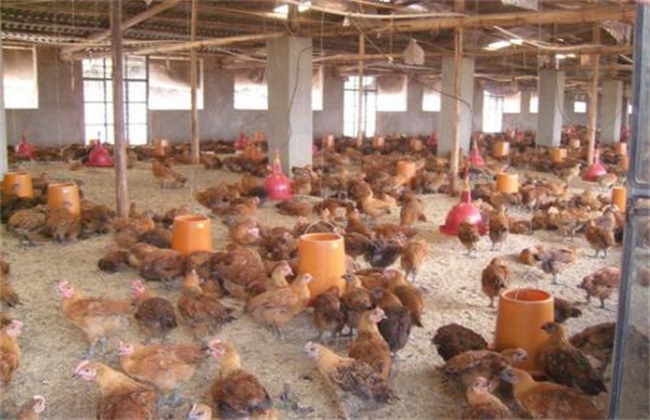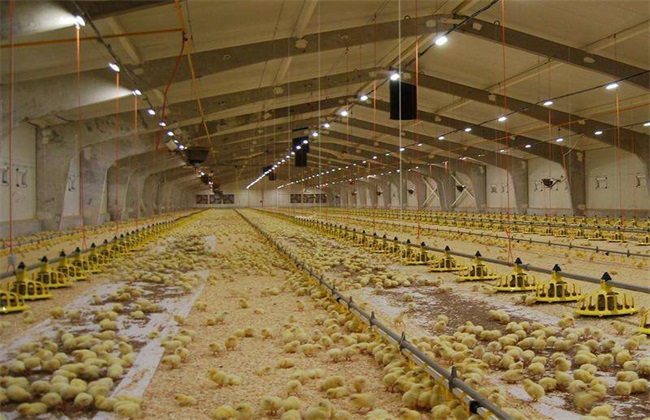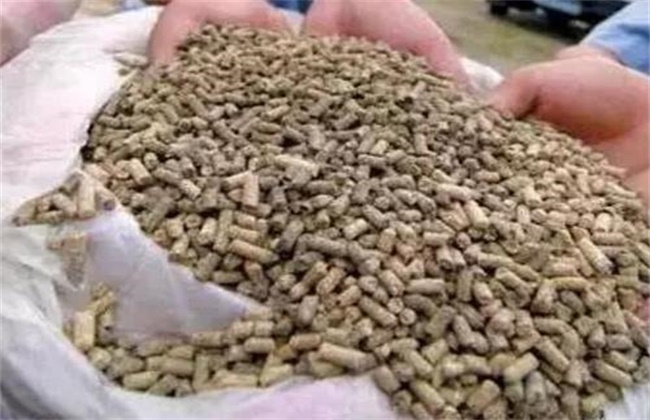Preventive measures of Chicken stress
Chickens often encounter some problems in the process of growth, and stress is one of them. Chicken stress refers to a non-specific response of chickens stimulated by external environmental factors. During breeding, if there is a sudden change in climate, immunization or high temperature and drought, it will affect the growth of chickens and cause all kinds of adverse effects. So how can we prevent the stress response of chickens? Let's take a look at the precautions against chicken stress with the editor.

1. Suitable growth environment
When raising chickens, it is necessary to create a suitable growth environment for chickens. In summer high temperature, to do a good job of heat prevention and cooling, low temperature in winter to prevent cold and increase temperature, and so on. Control the temperature in the henhouse to avoid temperature stress, and then the humidity should be controlled at about 55%. Do a good job in the ventilation of the chicken house, maintain the air quality, clean up the chicken manure regularly to avoid excessive ammonia content in the air. Then we should pay attention not to make noise, control the breeding density, do not raise too closely, to ensure that each chicken has sufficient growth space.
2. Strengthen the management
When raising chickens, we should adjust the feeding methods and prepare a reasonable feed formula according to the different growth stages of chickens, so as to meet the nutritional needs of chickens in each growth stage. When feeding feed, you must remember not to feed moldy and deteriorated feed. Do not easily change the feeding staff, feeding should be based on the principle of timing and quantity, to maintain adequate drinking water. Then to control the light, in the laying period, the light time should be controlled at about 16 hours. In the work of catching chickens and breaking beaks, we should pay attention to the work at night and pay attention to the strength.
3. Anti-stress additive
When we feed the feed, we should also add an appropriate amount of anti-stress additives to the feed. Adding appropriate amount of vitamin C to the diet can maintain a good body temperature in the event of heat stress and promote the concentration of sodium and cortisol in plasma to return to normal. Then proper supplement of trace elements such as zinc and iodine can also reduce their stress reaction. In addition, an appropriate amount of electrolytes can be added to the drinking water to maintain the acid-base balance of the chicken. Finally, there are drugs, Chinese herbal medicine and some feed additives, which can effectively alleviate the stress response of chickens.
4. Disease prevention and treatment
Finally, we should do a good job in the prevention and control of chicken diseases, maintain a clean environment of the chicken house, and disinfect the chicken house regularly. And we must do a good job in epidemic prevention according to the immunization procedure. The feeding method should be based on all in and all out. After the laying hens are raised, the henhouse should be empty for a period of time, and only after a comprehensive and thorough disinfection can the new chicks be admitted. In raising, it is best not to let unrelated personnel and vehicles carry on the chicken farm, do a good job in the prevention and control of mosquitoes, flies and rats, and avoid carrying pathogens. Feed appropriate amount of antimicrobials according to the actual situation to avoid infection with bacteria.
The above is a brief introduction of chicken stress prevention measures. That's all for today's introduction. This article is for reference only. I hope it can help you all.
Related
- On the eggshell is a badge full of pride. British Poultry Egg Market and Consumer observation
- British study: 72% of Britons are willing to buy native eggs raised by insects
- Guidelines for friendly egg production revised the increase of space in chicken sheds can not be forced to change feathers and lay eggs.
- Risk of delay in customs clearance Australia suspends lobster exports to China
- Pig semen-the Vector of virus Transmission (4)
- Pig semen-the Vector of virus Transmission (3)
- Five common causes of difficult control of classical swine fever in clinic and their countermeasures
- Foot-and-mouth disease is the most effective way to prevent it!
- PED is the number one killer of piglets and has to be guarded against in autumn and winter.
- What is "yellow fat pig"? Have you ever heard the pig collector talk about "yellow fat pig"?



